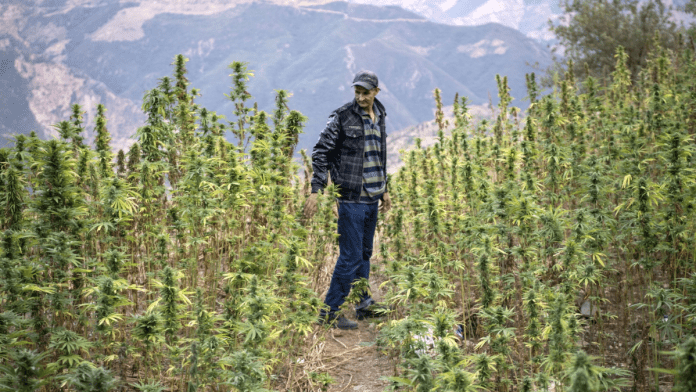News in brief: Morocco first legal cannabis crop has been planted for medical, industrial, and export purposes, as authorised by the government. Despite potential benefits in revenue and job creation, challenges like finding buyers and navigating the legal market, along with competition from the illegal trade, hinder farmers’ participation and profitability in this newly regulated sector.
Farmers in Morocco have planted the nationâs first legal cannabis crop, according to a Bloomberg report.
The north African country authorised a group of farmers and companies to cultivate cannabis in June, marking the beginning of its first legal growing season. Note that this authorisation is only for medical, industrial and export purposes only. Recreational use, however, remains banned.
The Moroccan government said the project is a good opportunity to boost revenue, create jobs and protect the environment. It has licensed hundreds of farmers and dozens of companies ranging from seed importers to pharmaceuticals since 2022.
Many farmers are yet to take advantage of the opportunity. Experts say that hurdles like the requirement that farmers find a buyer for their crop before receiving a license are compounding the situation. They also noted the difficulties in entering the legal market like expensive upfront costs, administrative hurdles and quality standards, discourage them.
Smaller businesses and cultivators suffer the most and find it hard to break even in the market.
Not to forget, there is stiff competition from illicit âhashishâ market run by drug barons. Morocco has long been a major cannabis supplier to neighbours across the Mediterranean.
The country’s state agency, saddled with the task of regulating legal cannabis, assured farmers that legalisation will earn them four to five times the income they generate from growing cannabis for the illegal market. It also re-iterated that farmers are free to chose whether to participate or not.
However, only 400 farmers have received authorisation as of the latest reports. Experts believe that Morocco will not reach its full potential in the cannabis industry as long as cultivation is limited to medical and industrial markets. Yet, the country does not appear to have plans to legalise cannabis cultivation for recreational sales.
According to information by the United Nations, Morocco is the biggest producer of cannabis resin in the world. It officially approved a bill legalising the production of cannabis in May 2021, a move it hoped will improve the economy of one of its poorest regions, Rif, because economic opportunities are more limited there than the rest of the country due the mountainous geography and historically difficult ties with the state.
The scope of legalisation of the crop includes industrial, medicinal and cosmetic use, in the three provinces of the Rif. The country created a National Regulation Agency for Cannabis Activities (ANRAC) to monitor the crop’s production.
According to figures given by the Moroccan Ministry of Interior back in 2013, at least 700,000 people, including 90,000 families, lived off the production of cannabis within its boundaries.



